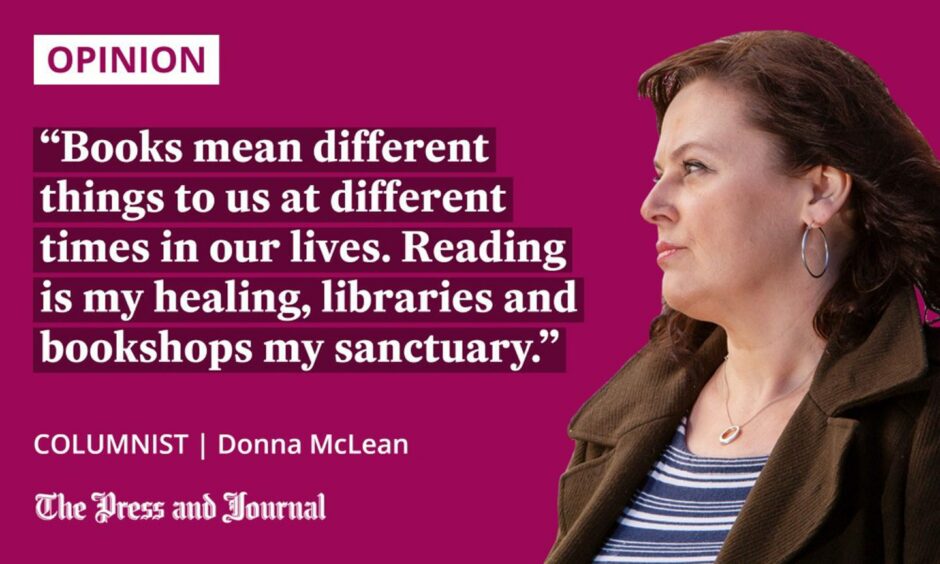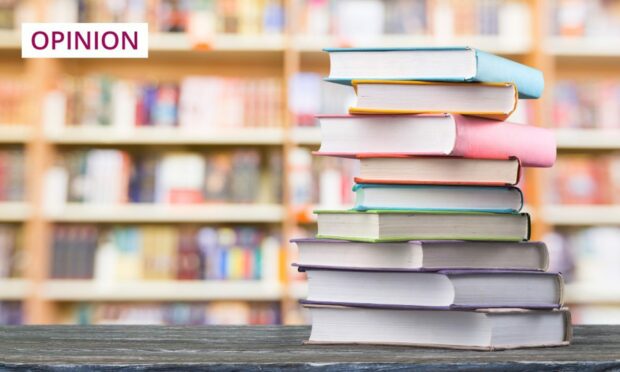A Twitter pal recently asked me to compile a list of books to read before he turns 40, which got me thinking about how we recommend them to other people.
Another Twitter pal talked to me recently about bibliotherapy – yes, I spend a lot of time talking about books on Twitter!
Bibliotherapy is literally what it says – a therapeutic approach which uses books and other forms of literature, often alongside more traditional therapies, to support wellbeing.
Though the books recommended by bibliotherapists can come from any genre, bibliotherapists normally employ fiction.
I started thinking about books as a prescription and how they’ve impacted my own thinking and behaviour at different stages of life, trying to go back through my own reading discoveries, especially those given to me by someone else.
My English teacher in secondary school immediately springs to mind.
As a troubled teenager, he introduced me to Sylvia Plath and Anne Sexton. That intervention changed my life, and The Bell Jar has always been with me, through thick, thin, house moves, breakups and breakdowns.
I’m suspicious of people offering self-help books, as much as I spent more than two decades professionally immersed in that world of therapy and mental health.
Yet, if you ask me what the most useful self-help book is, I will instantly say The Happiness Trap by Dr Russ Harris.
Harris argues that mainstream ideas about happiness are frequently misleading and inaccurate and that they contribute to stress, anxiety and depression.
In ‘striving’ for happiness, the more we suffer.
Reading this book was a genuine lightbulb moment for me. I realised I was fighting against things I couldn’t change – a chronic illness/ other people’s behaviour – and applying my depleted energy in the wrong direction.
I changed (some) things for the better as a result of that insight.

On the other hand, I was given a Paolo Coelho book at a particularly grim point in my life, and it has made me wary of that glassy-eyed kind of self-discovery ever since. (Apologies if you’re reading this, gift-giver of Coelho; it just wasn’t for me).
Thinking about this made me think of books as a gift, and I find myself unexpectedly remembering the first time my best pals mum, Allaine, gave me a Virago paperback. Molly Keane.
I still vividly remember the green cover and the apple logo. I was about 14 and so began an obsession with that particular publisher.
The current incarnation of that is Fitzcarraldo editions. There’s an excitement, a kind of book craving that happens when I see a new one pop up in my e-mails.
Books mean different things at different times in our lives
Books mean different things to us at different times in our lives. Some books remain a constant. I’ve always loved Raymond Carver’s short stories, now more than ever.
The same goes for James Kelman and Agnes Owens, whose books I will forcefully press into any hand.
Reading is, and always has been, a fundamental part of my life.
I love to binge on books, sometimes three at a time (one novel, one non-fiction, one short story collection).
I remember reading Roberto Bolano’s 2666 late into the night, when my babies who didn’t sleep much were asleep, knowing I should take my own rest while I could get it.
But I ignored common sense and stayed up reading until 3am, knowing full well I’d be up again at 5.30am if not sooner. The storytelling was too powerful. I had been captured.
I remember reading Ian Rankin’s Rebus series on my London commutes. My boyfriend at the time was a bookseller and he would bring home every new Rebus proof as soon as it landed. (I badgered him constantly).
Once I missed my stop on the tube and ended up at the last station on the Northern Line, I was that engrossed.
Every bit of a book gives me pleasure
Buying, reading, giving books, every bit of the process gives me pleasure.
When I was a child I hid in books, found a secret world. I think that carried on into adulthood.
As a writer, books are now my bread and butter. I learn from them. As a human, I take spiritual solace from them. I’m not religious, but books have helped me survive breakups and bereavements, physical and emotional pain.
I use reading to calm yet also to excite, to fire up my ideas and to politicise myself. I also use it to help me understand, to sit myself down beside another human who is suffering, to share their experiences and to hold empathy in that virtual space between us.
So, is reading a form of therapy? Yes, for me, absolutely. It can be so many things, and bring up so many memories and emotions.
Reading encompasses pleasure, socialising, distraction, an escape from reality, a spiritual journey, a relief, a release, a place to get away or a place to confront demons. Reading is my healing, libraries and bookshops my sanctuary.
Donna McLean is originally from Ayrshire and is a mum of twins, writer and activist.
